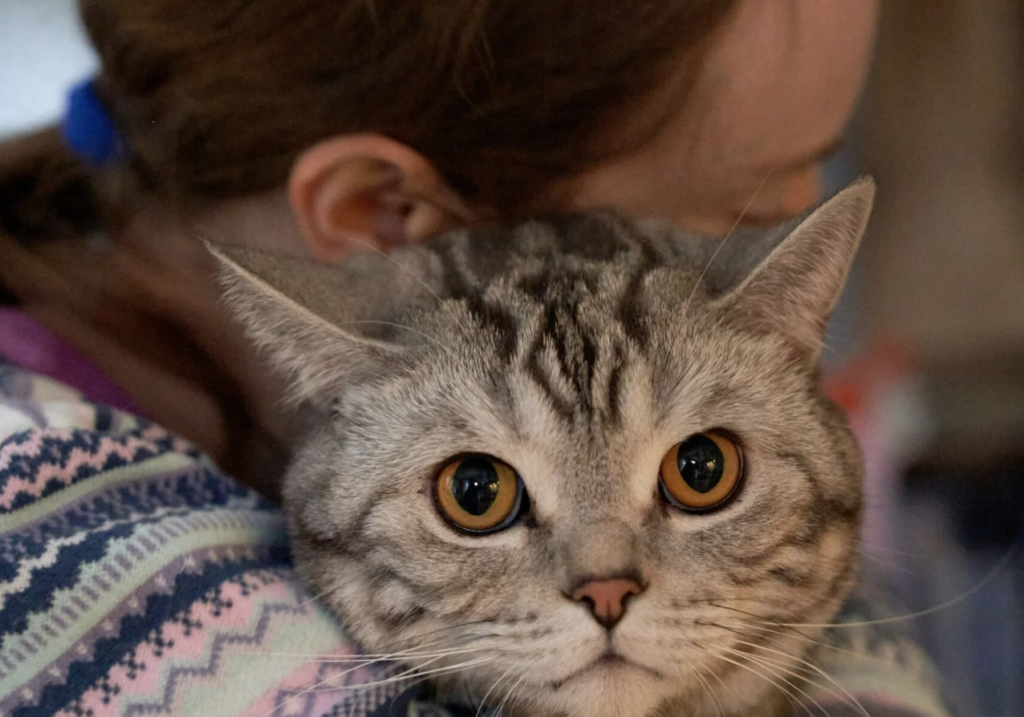
Understanding Your Cat’s Health Basics
Understanding your cat’s health is fundamental for ensuring a long and happy life for your feline companion. Just like humans, cats require regular medical check-ups to monitor their overall health status. These routine veterinary visits are essential not only for vaccinations but also for early detection of potential health issues. Cats are inherently skilled at hiding their discomfort, making regular check-ups crucial for uncovering underlying ailments that owners might not readily observe through day-to-day interactions.
Common health issues that can affect cats include dental disease, obesity, and chronic conditions such as diabetes and kidney disease. Dental problems often go unnoticed but can lead to severe pain and systemic illness if left untreated. Obesity is another growing concern among domestic cats, which can significantly impact their quality of life, leading to joint problems, diabetes, and heart disease. Being vigilant about your cat’s diet and weight is a proactive approach to combating these common health issues.
As a cat owner, taking an active role in your pet’s health care is vital. Regularly monitoring your cat’s behavior, eating habits, and physical appearance can provide critical insights into their well-being. For instance, a sudden change in appetite, weight, or litter box habits can indicate health problems that warrant immediate veterinary attention. Additionally, staying informed about specific breed predispositions can help you understand potential health risks your cat may face.
In conclusion, committing to a proactive approach in monitoring your cat’s health and ensuring routine veterinary visits are paramount. Understanding the basics of feline health not only empowers you as a cat owner but also fosters a deeper bond between you and your furry friend, ensuring they remain healthy and content throughout their lives.
Signs of a Healthy Cat
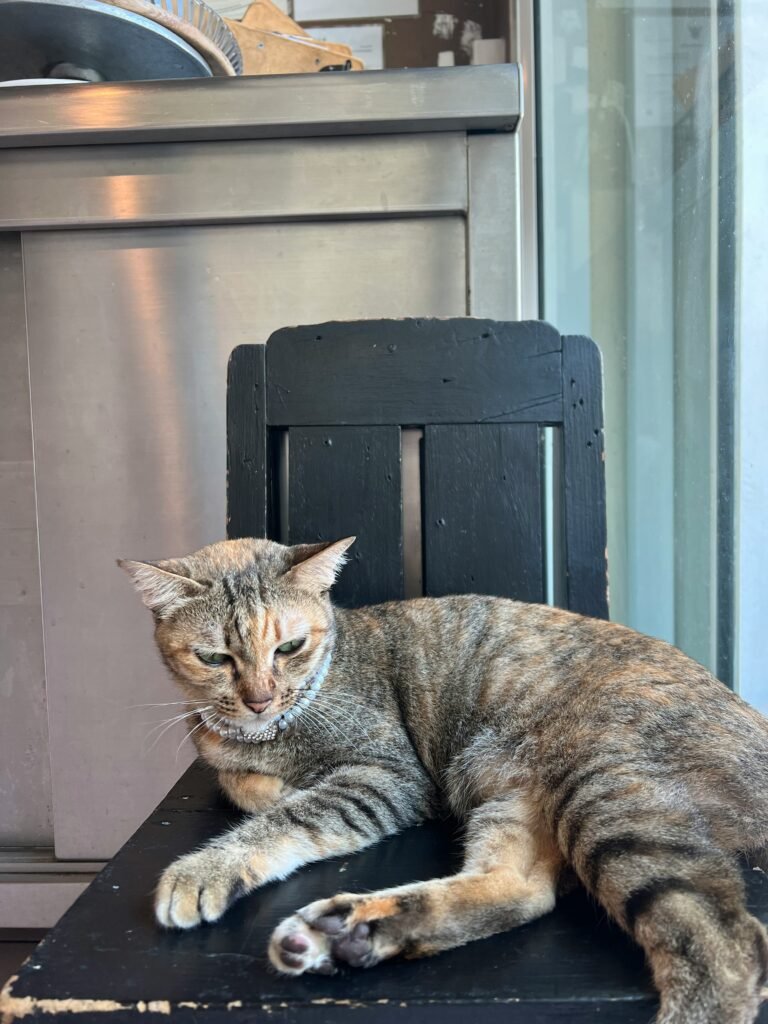
Recognizing the signs of a healthy cat is essential for every cat owner who wishes to maintain their feline’s well-being. A cat that exhibits several positive traits is typically a sign of good health. One of the first indicators is the condition of the cat’s coat. A healthy cat usually has a shiny, smooth fur coat without any bald patches or excessive shedding. The skin should be free of lesions or irritations, and regular grooming helps to keep it in top condition.
Another important aspect is the cat’s appetite. A healthy cat usually has a consistent and balanced appetite, enjoying varied food types without appearing finicky. It is crucial for pet owners to monitor feeding habits, as sudden changes in appetite can indicate underlying health issues. Alongside proper nutrition, hydration is equally essential, as a well-hydrated cat will drink enough water each day and maintain a healthy urinary tract.
Behavior plays a significant role in assessing a cat’s health. A healthy cat is typically active, playful, and curious, exhibiting normal activity levels for their age and breed. Excessive lethargy, withdrawal from family interactions, or a decline in playfulness may signal health concerns that warrant further investigation. Additionally, a cat’s litter box habits can provide insights into their health; regular, well-formed stools and a clean litter box indicate a functioning digestive system.
Finally, grooming habits are a reflection of a cat’s health. Cats are known for their self-grooming behavior, which helps to keep their coats clean and free of parasites. If a cat shows signs of neglecting grooming, such as matting or dirtiness, it could point towards stress or health issues. By being observant of these signs – coat condition, appetite, behavior, and grooming habits – owners can ensure they are in tune with their cat’s health and well-being.
Common Health Problems in Cats

Cats, like other pets, can experience a variety of health issues that may go unnoticed until they become severe. Among the most prevalent problems is obesity, a condition that affects a significant portion of the feline population. Obesity in cats often results from overfeeding and insufficient physical activity. Symptoms include lethargy, difficulty grooming, and noticeable weight gain. Maintaining a healthy weight is crucial, and pet owners should consider incorporating a balanced diet and regular playtime into their cat’s routine to combat this prevalent issue.
Another common concern is dental disease, which can lead to serious health complications if left untreated. Signs of dental disease may encompass bad breath, difficulty eating, and visible tartar build-up on the teeth. Regular dental check-ups are essential, along with providing dental treats or toys that can help maintain oral hygiene. Products specifically designed for dental care in cats can be an excellent preventive measure.
Parasites also pose a significant threat to a cat’s health, with fleas, ticks, and worms being the most common offenders. Affected cats may exhibit symptoms such as scratching, hair loss, and changes in appetite. Routine parasite control is vital, and cat owners should be diligent in administering preventive treatments available on the market. Early detection of these health issues can lead to more effective treatment options, ultimately ensuring your feline friend remains healthy and happy.
Overall, being observant and proactive about your cat’s health is essential. Regular veterinary check-ups, combined with awareness of the signs and symptoms of these common health problems, can dramatically improve early detection and treatment outcomes. By prioritizing your cat’s well-being, you can help prevent these issues from affecting their quality of life.
How to Conduct a Health Check at Home
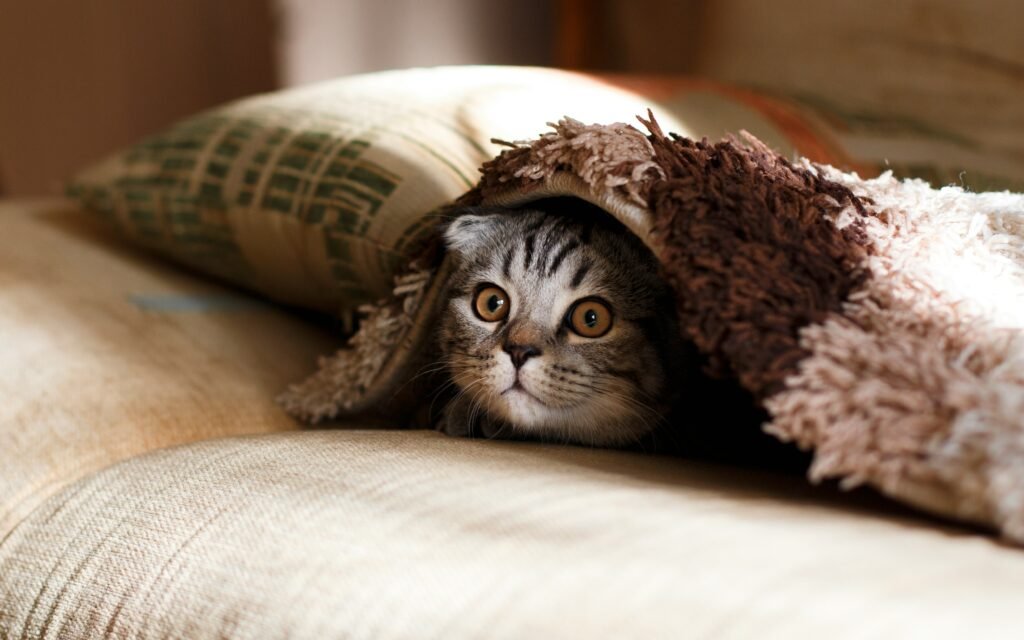
Performing a health check on your cat at home can play a vital role in maintaining their overall well-being. To begin, ensure that your cat is calm and comfortable, as a relaxed atmosphere will make the process easier for both you and your pet. Start by inspecting your cat’s skin and coat. Look for any signs of irritation, lumps, bumps, or excessive shedding. A healthy coat should be shiny and free from parasites like fleas or ticks.
Next, examine your cat’s eyes. They should be bright and clear without any discharge. Check for redness or cloudiness, which might indicate underlying health issues. It’s essential to make this part of your health check routine, as changes in eye appearance can signal problems that need veterinary attention.
Moving on to the ears, gently lift your cat’s ears to look for any dirt, wax buildup, or inflammation. The inside of the ear should be a healthy pink color, and if you notice any foul odor or brown discharge, it could indicate ear mites or an infection that may require treatment.
The mouth is another critical area to assess. Carefully lift your cat’s lips to check their gums and teeth. Healthy gums should be pale pink, while any redness or swelling may suggest dental disease. Look for any missing teeth or excessive tartar buildup, which can lead to more serious health concerns.
Finally, assess your cat’s posture and activity level. Changes in behavior, appetite, or litter box habits can indicate health problems. If you notice any unusual signs or symptoms during your checkup, it is advisable to consult your veterinarian for further evaluation.
When to See a Veterinarian
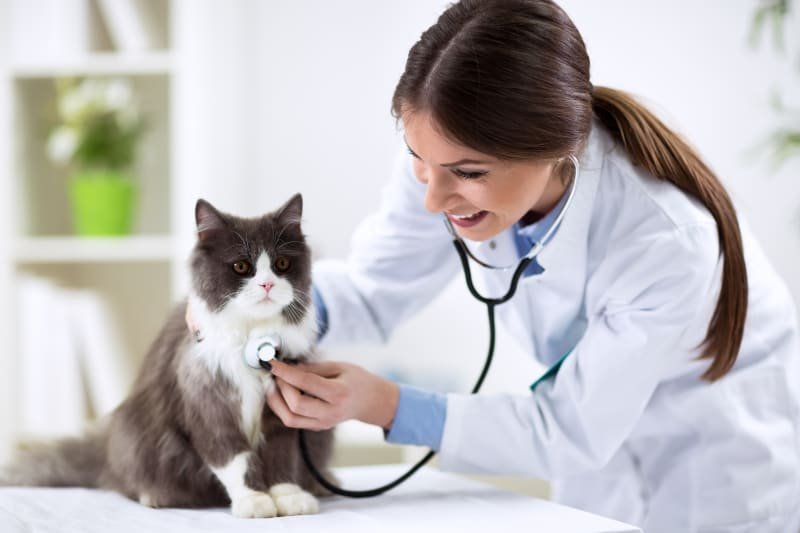
Recognizing when to seek veterinary care for your cat is crucial for maintaining their health and well-being. Various signs indicate that immediate consultation with a veterinarian is necessary. Acute signs may include, but are not limited to, difficulty breathing, severe vomiting or diarrhea, visible injuries, or sudden changes in behavior. Each of these symptoms can indicate underlying health issues that require prompt attention. For instance, if a cat exhibits labored breathing, it could signal respiratory distress, which necessitates urgent veterinary evaluation.
Chronic conditions also warrant regular veterinary visits. If your cat shows signs of prolonged lethargy, recurrent vomiting, weight loss, or changes in appetite, these symptoms should not be overlooked. They may indicate chronic health concerns such as diabetes, kidney disease, or hyperthyroidism. Early detection and treatment of these long-term conditions significantly improve the prospect of effective management and enhance the quality of life for your feline companion.
It is also essential to be proactive about routine health checks. Regular veterinary examinations can help identify potential health issues before they progress into more severe conditions. Vaccinations, dental care, and parasite prevention should be integral components of your cat’s health routine. Additionally, investing in pet insurance can alleviate financial stress, ensuring that necessary medical interventions do not go unaddressed due to cost concerns. Many policies cover both routine and emergency visits, giving pet owners peace of mind.
In conclusion, being vigilant about your cat’s health and recognizing when professional help is needed can save your pet from suffering and improve their longevity. Keeping open communication with your veterinarian and staying informed about your cat’s changing health needs is critical for making timely interventions.
Regular Preventive Care for Cats
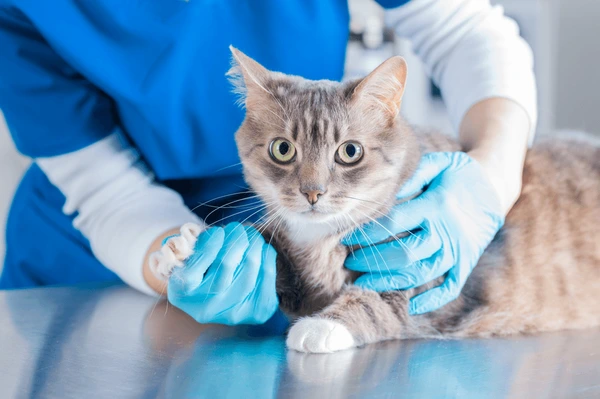
Maintaining your cat’s health involves regular preventive care, which is crucial in addressing potential health issues before they become serious. Preventive care encompasses a variety of services that are essential for keeping your feline friend in optimal condition. Key components include vaccinations, flea prevention, dental cleanings, and regular veterinary check-ups.
Vaccinations are vital in protecting your cat from various infectious diseases. Core vaccinations, such as those for feline viral rhinotracheitis, calicivirus, and panleukopenia, should be administered initially at around six to eight weeks of age, followed by booster shots at regular intervals. Additionally, non-core vaccines, which are recommended based on your cat’s lifestyle and environment, may include those for feline leukemia and rabies. Consult with your veterinarian to determine the appropriate vaccination schedule tailored to your cat’s specific needs.
Flea prevention is another critical aspect of preventive care for cats. Fleas can lead to serious health problems including anemia and allergic reactions; therefore, administering monthly flea preventatives is recommended. Many products, such as topical treatments or oral medications, are available on the market, so discussing options with your veterinarian can help you select the right one. Also, consider incorporating flea prevention kits, which can provide an all-in-one solution to safeguard your cat from these pests.
Dental health is often overlooked, yet it is vital for overall well-being. Regular dental cleanings, ideally performed by a veterinarian, are recommended to prevent periodontal disease, which affects a significant percentage of cats. Daily brushing at home is encouraged, and special dental treats or toys can complement this routine. Establishing a preventive care regimen that includes vaccinations, flea prevention, and dental care can significantly enhance your cat’s health, leading to a longer, happier life.
Importance of Nutrition and Diet in Cat Health


A balanced diet plays a critical role in maintaining the overall health and well-being of cats. Proper nutrition not only ensures that felines receive essential nutrients but also helps in preventing various health issues. Cats, being obligate carnivores, require specific types of proteins, fats, vitamins, and minerals to thrive. A well-rounded diet supports their metabolic needs, promotes healthy growth, and contributes to their energy levels.
Different life stages of a cat call for tailored dietary requirements. For instance, kittens have unique nutritional needs to support rapid growth and development, necessitating higher levels of protein and energy. On the other hand, adult cats typically benefit from a balanced diet that maintains their overall health, while senior cats may need specialized foods to manage age-related conditions such as kidney disease or arthritis. Additionally, cats with particular health problems, such as diabetes or obesity, require specialized diets formulated to address their specific needs.
When selecting cat food, it is crucial to choose high-quality products that list real meat as the primary ingredient and avoid fillers or artificial additives. Ideally, a cat’s diet should be rich in animal-based proteins, contain healthy fats, and include necessary vitamins and minerals. Some cat owners may also consider incorporating wet food into their cat’s diet, as it not only provides hydration but can also entice picky eaters.
There are numerous reputable brands that offer balanced diets for cats, accommodating various life stages and health concerns. It is advisable to consult with a veterinarian to determine the best food options tailored to your cat’s specific health needs. A well-balanced diet over a cat’s lifetime can significantly enhance their quality of life, longevity, and overall health.
Promoting Mental and Physical Well-being
Cats, like all pets, require a balanced approach to health that encompasses both mental and physical well-being. Enrichment activities play a critical role in providing stimulation and preventing behavioral issues. Engaging cats in playtime not only helps maintain their physical health, but it also encourages cognitive development and emotional satisfaction. Therefore, it is essential to create a stimulating environment for your feline friends.
One effective method to promote physical health in cats is through interactive toys that encourage exercise. Toys such as feather wands and laser pointers can stimulate a cat’s natural hunting instincts. Not only do they promote physical activity, but they also offer mental engagement, making playtime a comprehensive health booster. Moreover, utilizing treat-dispensing toys can keep cats engaged, fulfilling their need for mental and physical stimulation while also rewarding them with treats.
Environmental enrichment is another crucial aspect of a cat’s health. Introducing climbing shelves, scratching posts, or even cat trees can encourage exploration and play, allowing cats to express their natural behaviors. Heights and varied surfaces help some cats feel secure, satisfying their instinct to climb and survey their domain. Furthermore, providing hiding spots and cozy resting areas can enhance their sense of safety and reduce stress.
Regularly rotating toys and incorporating new activities can keep your cat’s interest alive. Consider activities such as puzzle feeding, where cats must solve puzzles to access their food, or setting up play sessions that mimic hunting scenarios. These methods not only entertain but also offer mental challenges that contribute to a well-rounded, healthy lifestyle. For an extensive range of toys and enrichment products, you can explore our recommended selections through the following affiliate links.
Incorporating these enriching activities into your cat’s daily routine promotes mental stimulation and physical fitness, ultimately leading to a happy and healthy feline companion.
Conclusion: Keeping Your Cat Healthy and Happy
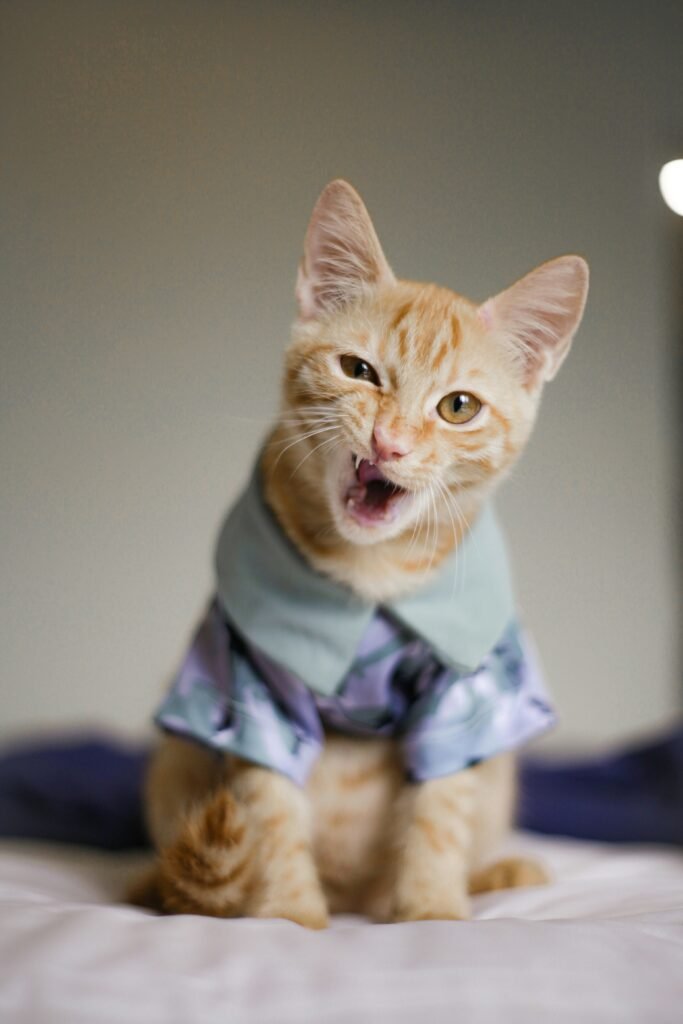
Ensuring your cat’s health is an essential aspect of responsible pet ownership. Throughout this guide, we have explored various key areas that contribute to feline well-being. Regular veterinary check-ups are imperative, as they allow for early detection of potential health issues, ultimately leading to more effective treatment. Establishing a routine that includes vaccinations, dental care, and appropriate parasite prevention can significantly enhance your cat’s quality of life.
Furthermore, we emphasized the importance of observing your cat’s behavior and physical condition. Regularly monitoring changes in appetite, weight, or energy levels can provide valuable insights into your cat’s health status. Additionally, maintaining a balanced diet tailored to their specific needs plays a critical role in keeping them healthy. Proper nutrition, combined with sufficient physical activity, supports their overall well-being.
It is also crucial to create a safe, stimulating environment for your cat. Engaging in play and providing enrichment activities not only helps in physical exercise but also stimulates their mental faculties. A healthy mind is just as important as a healthy body; thus, investing time in interactive play can enhance your cat’s happiness and reduce the likelihood of behavioral problems.
In summary, your cat’s health greatly depends on your proactive engagement in their care. By knowing the signs of a healthy cat and the resources available, such as proper veterinary services and high-quality products, you can ensure that your feline companion leads a long, vibrant life. Your commitment to regular health checks and preventive care will build the foundation for a happy and fulfilling relationship with your beloved pet.